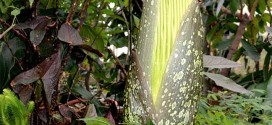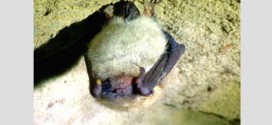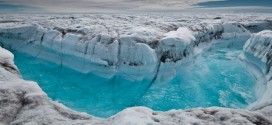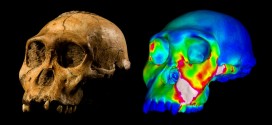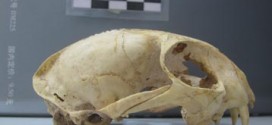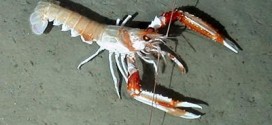Astronomers have discovered 883 new galaxies hidden behind the Milky Way’s stars and dust, 250 million light years from Earth. Using CSIRO’s Parkes radio telescope equipped with an innovative receiver, an international team of scientists were able to see through the stars and dust of the Milky Way, into a previously unexplored region of space.
Read More »Science
Chinese Fusion Reactor Sustains 90 Million Degree Plasma Blast for Over “Two Minutes”
China has gone one step. Its fusion reactor tests have created plasma that hit a temperature of 90 million degrees Fahrenheit, hotter than the core of the Sun, and sustained it for nearly two minutes, 102 seconds to be precise. Ensuring those temperatures can be sustained for long enough is essential to creating energy—the long-term goal of such fusion reactors. …
Read More »Tim Peake: Astronaut films timelapse of lightning strikes from space (Video)
Lightning is often a wonder to behold, and ESA astronaut Tim Peake recently shared a timelapse video sure to satisfy storm watchers everywhere. The British cosmonaut, who is currently stationed aboard the International Space Station, shared the 34-second clip early Tuesday morning on Facebook and Twitter.
Read More »Stench-Ridden Corpse Flower Blooms At University of Minnesota (Video)
The University of Minnesota’s corpse flower bloomed overnight and a few thousand visitors lined up for the privilege of smelling its pungent smell that some compared to rotting fish. For the first time in seven years, the University’s Titan Arum, or “Corpse Flower,” is about to make its malodorous appearance. The notoriously noxious plant, native to Sumatra’s equatorial rain forests, …
Read More »Researchers stumble on rare find in Banff National Park
Researchers stumbled upon the first bat hibernacula ever recorded in the park. They were surprised to find evidence of a bat cave, first ever discovered in Banff, Yoho, or Kootenay National Parks.
Read More »Effects of carbon emissions could last 10000 years, new study says
Climate change is going to make a lot more changes to our environment than anyone expected. Researchers have looked at the next 10,000 years and have found that climate change is likely to persist millennia after carbon dioxide releases cease. Most climate projections now end at 2300 at the latest, “because that’s the time period most people are interested in,” …
Read More »Early humans weren’t nutcrackers, says new Research
New study has shown that sediba was unable to eat hard foods‚ like nuts and bark‚ as was originally suggested in a paper published in 2012. A team of international scientists now believe that sediba didn’t have the jaw or tooth structure to handle a steady diet of hard foods.
Read More »Leopard cats were domesticated in ancient China, says new Research
Farmers in China may have been domesticating wild leopard cats more than 5,000 years ago, a new research has found. Were domestic cats brought to China over 5 000 years ago? Or were small cats domesticated in China at that time? There was no way of deciding between these two hypotheses until a team from the ‘Archéozoologie, Archéobotanique: Sociétés, Pratiques …
Read More »Earth is actually two planets, study shows
A new study that compared the chemical make-up of the Earth to that of the Moon concluded that our planet may be the result of a head-on collision between two planetary bodies: a proto-Earth and another planet called Theia. The concept isn’t new; scientists already believed that the crash was also responsible for the formation of the moon. However, UCLA …
Read More »Researchers claim Europe’s trees causing global warming
Planting trees is perhaps the best and most widely-known mitigative measure when it comes to climate change. However, a new study published Friday in the journal Science posits that planting the wrong kind of trees may, in practice, stoke global warming. Using historical data about trees planted in Europe since 1750, a team of French researchers created a computer modeling …
Read More »Man-made underwater sounds may affect marine ecosystem, says new Research
Underwater sounds linked to human activity could alter the behaviour of seabed creatures that play a vital role in marine ecosystems, according to new research from the University of Southampton. The study, reported in the journal Scientific Reports published by Nature, found that exposure to sounds that resemble shipping traffic and offshore construction activities results in behavioural responses in certain …
Read More » Canada Journal – News of the World Articles and videos to bring you the biggest Canadian news stories from across the country every day
Canada Journal – News of the World Articles and videos to bring you the biggest Canadian news stories from across the country every day



